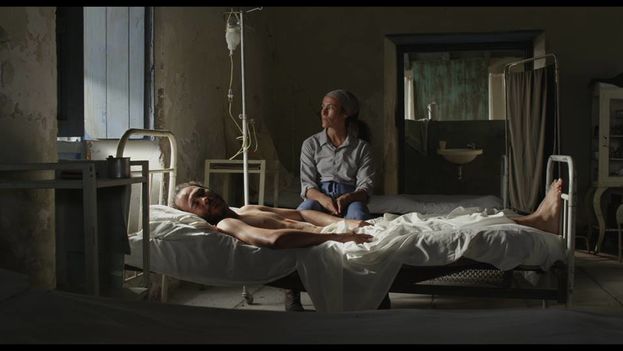
![]() 14ymedio, Reinaldo Escobar, Havana, 7 December 2016 — In the 38th edition of Havana’s Festival of New Latin America Cinema, shining by its absence is the Cuban film Santa y Andrés, by the filmmaker Carlos Lechuga. Those responsible for its censorship certainly didn’t cross it off the list without first consulting non-artistic entities such as the organs of State Security and other custodians of the official dogma.
14ymedio, Reinaldo Escobar, Havana, 7 December 2016 — In the 38th edition of Havana’s Festival of New Latin America Cinema, shining by its absence is the Cuban film Santa y Andrés, by the filmmaker Carlos Lechuga. Those responsible for its censorship certainly didn’t cross it off the list without first consulting non-artistic entities such as the organs of State Security and other custodians of the official dogma.
The controversy over the exclusion of the film has been unleashed on social networks and in several digital spaces. Arguing against Lechuga’s feature film are the voices tied to the “establishment,” who claim that it distorts history and that the many errors committed in the cultural field have been rectified. The defenders, for their part, laud the artistic values of the film and assert that it cannot be considered counterrevolutionary.
The Cuban Institute of Cinematographic Art and Industry (ICAIC) behaves like an entity privately owned by the only political party permitted in the country, and applies the resulting right of admission, an attitude contradictory and unacceptable for an institution that is publicly created as a representative the interests of the whole nation.
Many filmmakers act as if they believe that the ICAIC does not represent the interests of power. This apparent naiveté gives them a right to feel offended and surprised by the censorship imposed by the entity, like the teenager who comes home late with the illusion of not being scolded by her parents, who remind her of their right to search her belongings and to prohibit her next outing.
As long as artists continue to respect and revere institutions without directly questioning them, they will have to bow their heads and obey, or ultimately they will have to leave the country.
Santa and Andrés was conceived and created independently as if censorship did not exist, as if the stern father had softened and tempered over the years. One way of putting strength to the test and pushing the wall of prohibitions.
Regardless of its indisputable artistic values, Carlos Lechuga’s film will be remembered as another occasion when the repressors of thought were forced to take off their masks of good-naturedness. Cultural authorities have again demonstrated the hardened face of an intolerant patriarch showing his children who really holds the key to the house.
